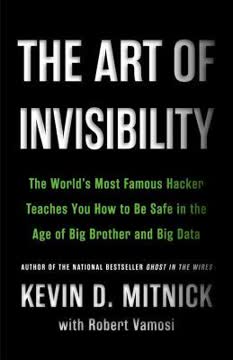Key Takeaways
1. Understand yourself and others through DISC profiling
"To become a master hacker of humans, you must first hack yourself."
Know thyself. Understanding your own communication style is the first step to effectively interacting with others. The DISC assessment categorizes people into four types: Dominant (D), Influencing (I), Steady (S), and Conscientious (C). Each type has distinct characteristics:
- D: Direct, results-oriented, confident
- I: Enthusiastic, optimistic, people-oriented
- S: Supportive, calm, patient
- C: Analytical, detail-oriented, precise
By identifying your own type and recognizing others', you can adapt your communication style to build better rapport and influence. This self-awareness allows you to compensate for weaknesses and leverage strengths in social interactions.
2. Craft compelling pretexts to set the stage for influence
"To exert influence and get what you want, it helps immeasurably to devise a plausible and compelling pretext for having a conversation and making a request, and to play your prescribed 'role' within that pretext flawlessly."
Frame the interaction. A pretext is the context or occasion for a conversation that makes your presence and request seem natural and reasonable. To create an effective pretext:
- Identify the issue you're trying to solve
- Specify your desired outcome
- Determine the emotions you want to evoke
- Anticipate the emotions you need to project
- Define your pretext
- Plan how to deliver it
- Evaluate its authenticity and ethical considerations
Remember, a good pretext should be rooted in truth and leave people better off for having met you.
3. Build instant rapport to create connection and trust
"With just a bit of carefully crafted banter, I could affirm to these strangers that I didn't pose a threat but was rather a perfectly innocuous and friendly member of their tribe."
Create common ground. Building rapport quickly establishes trust and makes others more likely to comply with your requests. Use these techniques:
- Establish artificial time constraints
- Adjust your speaking pace to match theirs
- Ask for small favors or assistance
- Suspend your ego and validate others
- Share information to encourage reciprocation
- Give small gifts or compliments
- Manage your own expectations
Remember, the goal is to make others feel comfortable and connected, not to manipulate them.
4. Use ethical influence techniques to achieve your goals
"If you would persuade, you must appeal to interest rather than intellect."
Leverage psychology. Ethical influence techniques can help you achieve your goals while leaving others better off. Key principles include:
- Reciprocation: Give to get
- Concession: Start high, then concede
- Scarcity: Highlight limited availability
- Consistency: Encourage aligned behavior
- Social proof: Show others' approval
- Authority: Demonstrate credibility
- Liking: Build genuine affinity
Use these principles thoughtfully and ethically, always considering the other person's best interests alongside your own.
5. Elicit information through strategic conversation
"Elicitation is the process of obtaining information without asking for it overtly."
Ask without asking. Skillful elicitation allows you to gather information naturally without arousing suspicion. Techniques include:
- Make obviously untrue statements to prompt corrections
- Provide high and low estimates to narrow down specifics
- Assume knowledge to encourage sharing
- Express disbelief to elicit explanations
- Quote "reported facts" to spark discussion
Practice active listening and remember details. Always aim to leave people feeling better for having spoken with you.
6. Recognize and protect yourself from manipulation
"Manipulators will sometimes punish others or levy the threat of punishment to elicit strong emotion (namely, fear or even terror), making their targets more susceptible to persuasion."
Stay alert. Manipulation differs from influence by exploiting emotions to compel compliance against someone's best interests. Common manipulation tactics include:
- Environmental control
- Forced reevaluation
- Increased powerlessness
- Punishment or threats
Protect yourself by recognizing these tactics, maintaining emotional control, and questioning motives when you feel pressured or uncomfortable.
7. Harness nonverbal communication for greater impact
"If you can master the art of nonverbal communication, you'll have a far easier time getting others to do your bidding than if you rely on words alone."
Speak without words. Nonverbal cues, especially facial expressions, convey powerful messages. Focus on the "Big Seven" emotions:
- Anger
- Fear
- Surprise
- Disgust
- Contempt
- Sadness
- Joy
Learn to recognize and express these emotions through facial expressions and body language. This skill enhances your ability to read others and communicate more effectively.
8. Ensure authenticity in your interactions
"Skillful storytellers attend to the details of their narratives with an eye toward making them consistently believable and natural."
Keep it real. Authenticity is crucial for successful human hacking. Avoid these common pitfalls:
- Being too direct or explicit
- Negating the frame you're trying to create
- Striving for perfection in details
- Being tone-deaf to social cues
- Pushing too hard for your desired outcome
Instead, focus on natural, believable interactions that align with your pretext and the existing level of rapport.
9. Plan and prepare for critical conversations
"If you have an important conversation coming up, do what social engineers do: plan it out."
Strategize for success. Create a conversation outline for important interactions:
- Map the terrain (context, participants, power dynamics)
- Define your goal
- Decide on your pretext
- Plan rapport-building tactics
- Identify influence techniques
- Check for potential manipulation
- Consider nonverbal elements
- Ensure authenticity
- Prepare for contingencies
- Plan to solidify your gains
While planning is crucial, remain flexible and adaptable during the actual conversation.
10. Practice empathy and leave others better off
"Hacking humans can help anyone win friends, influence people, and achieve their goals. It can help you."
Cultivate connection. At its core, human hacking is about developing empathy and considering others' needs alongside your own. By mastering these skills, you can:
- Improve personal and professional relationships
- Achieve your goals more effectively
- Navigate difficult conversations with grace
- Protect yourself from manipulation
- Make a positive impact on others' lives
Remember, the ultimate goal is to leave people better off for having met you, creating win-win situations in your interactions.
Last updated:
FAQ
What's Human Hacking about?
- Exploring Human Interaction: Human Hacking by Christopher Hadnagy delves into psychological techniques for influencing and connecting with others, focusing on positive outcomes.
- Techniques for Influence: It outlines methods for building rapport, eliciting information, and persuading others, with an emphasis on ethical use.
- Empathy as a Tool: A central theme is the importance of empathy in communication, allowing individuals to connect and achieve goals while leaving others feeling valued.
Why should I read Human Hacking?
- Practical Skills: The book provides actionable techniques to enhance personal and professional relationships, applicable in everyday situations.
- Understanding Manipulation: It helps readers recognize manipulation tactics, empowering them to protect themselves and navigate social interactions effectively.
- Building Better Connections: Emphasizing empathy and rapport-building, it offers valuable insights for improving social skills and fostering meaningful relationships.
What are the key takeaways of Human Hacking?
- Know Yourself First: Understanding your communication style is crucial for tailoring interactions to others' personalities.
- Pretexting and Rapport: Establishing a pretext and building rapport are essential for successful interactions, creating a comfortable environment.
- Influence Principles: The book outlines principles like reciprocation, social proof, and authority to enhance persuasive abilities.
What are the best quotes from Human Hacking and what do they mean?
- “If you would persuade, you must appeal to interest rather than intellect.” This highlights the importance of understanding motivations to achieve influence.
- “You must make a habit of getting outside of your own head.” It emphasizes empathy, encouraging consideration of others' perspectives during interactions.
- “To influence others to obtain what you want, cultivate an empathetic mindset.” This underscores empathy as key to successful human hacking.
How does Human Hacking define influence?
- Making It Easy to Comply: Influence involves making it easy for someone to behave or think in desirable ways by understanding their motivations.
- Psychological Techniques: The book outlines principles like reciprocity, social proof, and authority to influence others effectively.
- Ethical Considerations: Hadnagy stresses using influence ethically, ensuring interactions leave others better off.
What is pretexting in Human Hacking?
- Creating Context for Interaction: Pretexting involves establishing a context or rationale for a conversation to achieve goals.
- Role-Playing: It involves assuming a role that aligns with the created context, building trust and rapport.
- Example of Pretexting: Hadnagy shares a story of posing as a pest control worker to gain access to a secure building, illustrating successful pretexting.
What is the DISC framework mentioned in Human Hacking?
- Understanding Personalities: The DISC framework categorizes individuals into Dominant, Influencer, Steady, and Conscientious types for effective communication.
- Tailoring Communication: Recognizing someone's DISC type allows for adjusted communication styles, enhancing rapport and influence.
- Practical Applications: Strategies for engaging with each personality type are provided, aiding in navigating social interactions.
How can I build rapport according to Human Hacking?
- Find Common Ground: Establish shared interests or experiences through casual conversation and active listening.
- Use Body Language: Nonverbal cues like open and friendly body language help put others at ease and foster connection.
- Be Genuine: Authenticity is key; people respond positively to sincerity and genuine interest.
What are some elicitation techniques described in Human Hacking?
- Open-Ended Questions: Encourage deeper conversation and information sharing with open-ended questions.
- Building Rapport: Find common ground or shared interests to make others more willing to share.
- Subtle Manipulation: Use techniques like making untrue statements to prompt corrections and reveal information.
How does Human Hacking differentiate between influence and manipulation?
- Ethical Influence: Influence guides others toward mutually beneficial decisions, fostering cooperation and understanding.
- Manipulation Defined: Manipulation involves coercion or trickery, often at the expense of others, and is unethical.
- Focus on Relationships: Hadnagy advocates for genuine relationships through influence, avoiding deceitful tactics.
How can I improve my active listening skills as suggested in Human Hacking?
- Reflective Questions: Ask reflective questions by repeating key words to encourage elaboration and show engagement.
- Focus on Nonverbal Cues: Pay attention to body language and facial expressions to understand emotions and adjust responses.
- Minimize Distractions: Create a conducive listening environment by minimizing distractions and maintaining eye contact.
How can I apply the techniques from Human Hacking in everyday life?
- Practice Daily: Use elicitation techniques in casual conversations, like asking open-ended questions to friends or colleagues.
- Be Mindful of Interactions: Pay attention to body language and DISC profiles to tailor communication effectively.
- Reflect on Experiences: After interactions, reflect on successes and areas for improvement to enhance future conversations.
Review Summary
Human Hacking received mixed reviews, with an average rating of 3.8 out of 5. Many readers found the book informative and useful for improving communication skills and social interactions. Some praised its practical advice and entertaining anecdotes. However, critics argued that the content was not entirely original and raised ethical concerns about potential manipulation. Several reviewers appreciated the author's emphasis on using the techniques ethically and leaving people better off after interactions. Overall, the book was seen as a valuable resource for those interested in social engineering and interpersonal skills.
Similar Books










Download PDF
Download EPUB
.epub digital book format is ideal for reading ebooks on phones, tablets, and e-readers.





